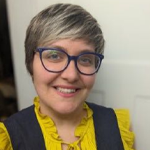Cohort March 2022: Faculty of Land and Food Systems – Lucy Hoang, Amber Brideau, Gail Hammond
Project background
FNH 473 is a required course for dietetic students (n=50% of class) and an elective for students in other programs (e.g., Nutritional Sciences; Food, Nutrition & Health; Integrated Sciences). The course demands higher-order thinking in all aspects of the student’s work, which can be challenging for many. Undergraduate students hired through the Students as Partners in Course Design program could help identify what is working well, areas for strengthening, which content or activities to delete or replace, design appropriate assessment tools, and critically review the learning objectives through the lens of a student.
Project details
This perspective of elements in the course design would be interwoven with the instructor’s view to create a collaborative course design project. Over the past five years, revisions have improved the flow of the course and eased demands on the students, community partners, and teaching team. However, a re-design of both the theoretical and practical components of the course would maximize learning by incorporating new strategies and activities that empower students to tackle a project in which they are largely accountable to their community partner. At the same time, learning would be reciprocated as the community partners gain exposure to new public health programming approaches and learn from students (e.g., feasibility in project scope).
Testimonials

Applied Public Health Nutrition was one of my most engaging courses in my undergraduate degree and it has been exciting to work alongside the professor who taught the course to me. As part of the Students as Partners in Course Design, I have been able to provide genuine and constructive feedback about my challenges with the course and suggestions for how student learning can be strengthened.
Particularly, I have been working on redesigning the Canvas layout of the course to streamline information and provide students with an organized timeline of assignments, readings and evaluations. Furthermore, I have been working on an interactive activity through H5P to help students understand how to approach the evaluation quizzes. It has been rewarding to contribute my feedback as a partner, as I feel this will enhance and deepen students’ understanding of Applied Public Health Nutrition.
— Lucy Hoang (Student)

We came together as a collaborative, supportive, and dynamic team, with each member committing to an open, safe and inclusive communicative space for working together, and in this space we have listened attentively to each other, engaged in meaningful dialogue, respected each other’s points of view, and identified relevant learning experiences for each other.
This SaP project intentionally engaged past and future FNH 473 students to gain both reflective and aspirational viewpoints of learning about public health nutrition. Each member of the team has invested in envisioning and creatively generating changes to the course, has determined the part of the project they were most interested in, and has been accountable for seeing that part of the project through to completion.
Overall, the opportunity to have students, faculty and staff working side-by-side to improve course design has been a unique and rich learning experience for all of us. We have all benefitted from networking with each other and enhancing our course re-design skills can be applied in multiple settings, particularly for the students in their future careers.
— Gail Hammond (Faculty)

Having not taken FNH 473 at the onset of the project I decided to join the Students as Partners initiative to learn the inner workings of course design as it aligns with my future career goals. This is a unique experience as a student, to peek behind the curtain and understand the intricacies of course design, content development and gain insight into the effort required to make a course run smoothly.
Additionally it has required skill building with regards to communication as there is a lot of communication between students, instructors, technical support teams and a variety of other folks that I wouldn’t normally have cause to interact with. I have loved having exposure to programs such as H5P for designing interactive and engaging tools that students will use in the course for years to come and I believe the experience has been enlightening to the efforts required when building or redesigning a course.
— Amber Brideau (Student)
